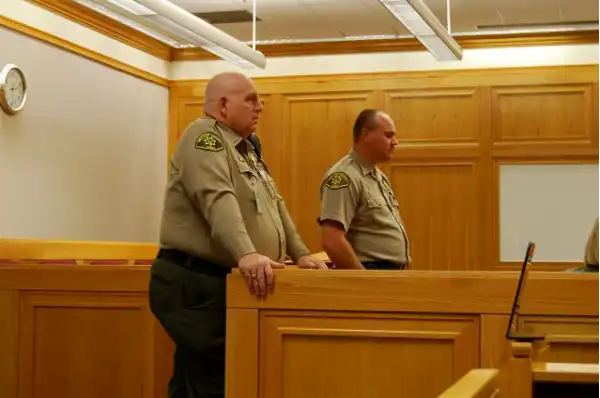COURSE TITLE: Preparing for Civil Litigation & Testimony
CATEGORY: Civil Litigation & Risk Management
INSTRUCTOR: Sean Stewart
CREDIT HOURS: 1 CEU
Are you and your staff prepared for Civil Litigation or giving Testimony in court if your facility is facing an inmate filed lawsuit?
It can be a scary place to find yourself if you are unprepared and left to figure it out on your own. Luckily, you have a resource with NIJO.
NIJO offers over 80 hours of online, interactive training through our Detention and Corrections Officer Online Training Academy (DACOTA) including a course on Preparing for Civil Litigation and Testimony created by one of NIJO’s experts, Sean Stewart, CJE, NCCE.
This course offers 1 credit hour of legal-based training in the area of “Civil Liability & Risk Management”. The course is broken out into seven chapters covering the topics of:

- Post-Incident Preparation;
- Report Writing;
- Adverse Inference;
- Identifying & Questioning Witnesses,
- Major Incident Review and Documentation
- Legal Assistance and Deposition Dos and & Don’ts
- Court Room Testimony
When you or your agency is facing litigation, proper preparation will make all the difference. Learn about what you can do to prepare for civil litigation through this DACOTA course by Sean Stewart.
Our goal at NIJO is simple- eliminate and protect against frivolous inmate lawsuits that cost counties, agencies and taxpayers millions every year. If this course could bring value to your agency, we should be talking.
Legal-Based means your facility is making policy based on the law. NIJO is the only legal-based resource for training and policy development and we exist with the sole purpose of helping you run a better protected jail.
Learn how NIJO can help you and your agency by scheduling a
FREE RISK ASSESSMENT or DACOTA Demo.
DISCLAIMER:
Training materials provided are for use only within the scope of your jail and may not to be distributed otherwise without written permission by NIJO. The information contained herein is to be used solely for training purposes and shall not be construed as legal advice. Users of these materials should consult legal counsel to determine how the laws of their individual jurisdiction affect the application of these materials and guidelines to their individual circumstances.


